My approach: The lessons that we need to learn about collective resistance are found in the stories of folks who have decided to make a difference in this world.
Listening to folks stories, you learn what matters to them, you hear their challenges, their strengths and their dreams.
You also learn about – and from – their analysis of the events that have shaped their lives.
Stories of resistance, woven together, provide a map about how social change happens over time; not to be copied thoughtlessly, but to learn from and gain inspiration and skills.
This is what has moved me to study oral history and to apply popular education methods to amplify lessons within stories so that they are accessible. As a consultant and educator, I am available to support your oral history research as a consultant or presenter. Examples of recent workshops are here: http://listeningandlearningtogether.com/consulting/
I founded The Picture the Homeless Oral History Project in 2017 and was chosen as a National Endowment for the Humanities Fellow in 2022/2023, allowing me to work fulltime on the Picture the Homeless Oral History Project. Below is a description of the project, photos from our exhibit Celebrating Resistance Relationships, and examples of popular education materials created from the oral history interviews and archive.
Over a 17 year period working with Picture the Homeless, I was deeply inspired by the courage and resilience of homeless New Yorkers who chose to fight for the human and civil rights of homeless folks. Building a grass roots organization that deeply impacted the social justice movement was something that needed to be documented. However, beyond merely constructing timelines of events and victories, it was even more important to listen to the long time leaders of Picture the Homeless who shaped those events and victories – as well as bumps in the road – to learn what those things meant to the people who planned and implemented the work that made them possible. It was important to listen to leaders, staff and allies to learn about the powerful relationships formed through struggle, and what conditions made them possible and where Picture the Homeless fit in the ecosystem of movement organizations.
The collection includes 50 oral history interviews and the vast collection of photos, videos, reports, press clippings, notes, and testimonies from nearly two decades of organizing. The archive tells us what happened when but it is the long form oral history interviews which tell us what those events meant to the folks at Picture the Homeless who planned those events, carried them out and reflected on their impact.
The Picture the Homeless Oral History Project documents and preserves PTH’s history and offers tools to support the collective, visible leadership of homeless and poor folks in movements for social change. In that spirit, this oral history project is a skill-share, offered in solidarity and respect for the struggles of homeless and poor folks everywhere.
A MEMORY QUILT
The Picture the Homeless Oral History Project contains the collective memory of two decades of organizational and movement building by homeless leaders, former staff, and political allies of Picture the Homeless (PTH). These movement histories fill in gaps in the historic record, and breathe life into the newspaper clippings, photos, reports, and other items in the archive.
By broadly thinking about archiving, we are creating popular education materials in print and digital form, and are archiving the collection with the Tamiment Library and Robert F. Wagner Labor Archives at New York University, so that long after we are gone, the collection remains publicly accessible. We are engaging with other movement archives for preservation and creating popular education materials. Additionally, the project will be included in the soon to launch Housing Justice Oral History Project platform at the New School for Social Research.
Sign up for the project newsletter here:

The Picture the Homeless Oral History Project is part of a new oral history platform, the Housing Justice Oral History Project at the New School for Social Research!
PICTURE THE HOMELESS ORAL HISTORY PROJECT
ABOUT
The Picture the Homeless Oral History Project documents an organizing approach that supported the collective political leadership of homeless New Yorkers over a twenty year period. The interviews and archive combine to reveal the impact of that work on members, staff, allies, and the social justice movement and it places the struggles of homeless New Yorkers within a broader movement history.
Picture the Homeless (PTH) waged organizing campaigns that addressed the root causes of homelessness, knowing that doing so could made all of NYC a better place. PTH members and staff educated themselves and the rest of the movement about real solutions to homelessness, using a diversity of tactics including creative direct action, civil disobedience, street theatre, participatory action research, self-published reports, mutual aid, Know Your Rights and public education, legislation, litigation, media and coalition work, the creation of an organizer trainee program and Homeless Organizing Academy and an appreciation of celebration, fun and love. The fruit of PTH’s labor reverberates throughout the housing and social justice movement today.
Oral history is a tool for resistance. If movements don’t create space for the most marginalized folks to shape social justice struggles, and to lead them, we are subject to replicate the systems of oppression that we aim to end. This project is offered in the spirit of mutual aid and solidarity to strengthen the efforts of homeless and poor folks organizing for justice and respect.
VALUES, PURPOSE, AND METHODS
The Picture the Homeless Oral History Project’s approach combines elements of oral history research, community organizing principles and participatory action research methods. We call this approach Participatory Oral History Research, and have identified strategies applicable to any oral history project.
OUR VALUES are rooted in the following:
- People most harmed by injustice must be at the center of leadership for social change – including and especially folks harmed by multiple systems of oppression
- Respect for each person’s capacity to analyze the meaning of historic events and the conditions of our own lives
- Research must benefit a communities goals as they define them, and not be extractive or prescriptive
- Accountability to narrators through on-going engagement benefits each stage of the project
OUR PURPOSE is to identify the conditions at PTH that supported homeless New Yorkers to not only stay involved, but to deepen their participation and commitment. In light of the extremely challenging circumstances homeless members were experiencing, we acknowledge the beauty and sacrifice of this work.
READ more about the Picture the Homeless Oral History Project, LISTEN to Oral History Interviews with long time unhoused leaders of Picture the Homeless, former staff, board and political allies, READ full interview transcripts – summarized and indexed, ACCESS and DOWNLOAD popular education materials produced by this project, including CAMPAIGN ZINES and check out the ARCHIVE!
https://housingjusticeoralhistory.org/projects/picture-the-homeless-oral-history-project-1
——————————————————
Women Who Change the World: Stories from the Fight for Social Justice
I’m beyond honored to share that City Lights has published my collection of oral history interviews with nine amazing women social justice workers.
Overview: Nine women who have dedicated their lives to the struggle for social justice–movement leaders, organizers, and cultural workers–tell their life stories in their own words. Sharing both vulnerable and affirming moments, they talk about the origins of their political awakenings, their struggles and aspirations, insights and victories, and what it is that keeps them going in the fight for a better world, filled with justice, hope, love and joy.
“Lynn Lewis’s longtime organizing experience, political insight, and loving heart shine brightly through this collection of oral histories. She introduces nine changemakers from across the United States whose lives reflect the intersection of personal experiences with the legacies of history. Each woman describes her transformative journey to becoming an activist and community builder. These inspiring accounts offer urgently needed ideas, strategies, and actions that women pursue to create a more just society.”–Iris Morales, author of Revisiting Herstories: The Young Lords Party

From left to right: Betty Yu, Vanessa Nosie, Roz Pelles, Priscilla Gonzalez, Malkia Devich-Cyril, Terese Howard, Yomara Velez, Loretta Ross and Hilary Moore.

I founded The Picture the Homeless Oral History Project in 2017 and was chosen as a National Endowment for the Humanities Fellow in 2022/2023, allowing me to work fulltime on the Picture the Homeless Oral History Project. Below is a description of the project, photos from our exhibit Celebrating Resistance Relationships, and examples of popular education materials created from the oral history interviews and archive.
Over a 17 year period working with Picture the Homeless, I was deeply inspired by the courage and resilience of homeless New Yorkers who chose to fight for the human and civil rights of homeless folks. Building a grass roots organization that deeply impacted the social justice movement was something that needed to be documented. However, beyond merely constructing timelines of events and victories, it was even more important to listen to the long time leaders of Picture the Homeless who shaped those events and victories – as well as bumps in the road – to learn what those things meant to the people who planned and implemented the work that made them possible. It was important to listen to leaders, staff and allies to learn about the powerful relationships formed through struggle, and what conditions made them possible and where Picture the Homeless fit in the ecosystem of movement organizations.
The collection includes 50 oral history interviews and the vast collection of photos, videos, reports, press clippings, notes, and testimonies from nearly two decades of organizing. The archive tells us what happened when but it is the long form oral history interviews which tell us what those events meant to the folks at Picture the Homeless who planned those events, carried them out and reflected on their impact.
The Picture the Homeless Oral History Project documents and preserves PTH’s history and offers tools to support the collective, visible leadership of homeless and poor folks in movements for social change. In that spirit, this oral history project is a skill-share, offered in solidarity and respect for the struggles of homeless and poor folks everywhere.
A MEMORY QUILT
The Picture the Homeless Oral History Project contains the collective memory of two decades of organizational and movement building by homeless leaders, former staff, and political allies of Picture the Homeless (PTH). These movement histories fill in gaps in the historic record, and breathe life into the newspaper clippings, photos, reports, and other items in the archive.
By broadly thinking about archiving, we are creating popular education materials in print and digital form, and are archiving the collection with the Tamiment Library and Robert F. Wagner Labor Archives at New York University, so that long after we are gone, the collection remains publicly accessible. We are engaging with other movement archives for preservation and creating popular education materials. Additionally, the project will be included in the soon to launch Housing Justice Oral History Project platform at the New School for Social Research.
Sign up for the project newsletter here:

Photos from the Picture the Homeless Oral History Project Celebrating Resistance Relationships Exhibit, June 30, 2023
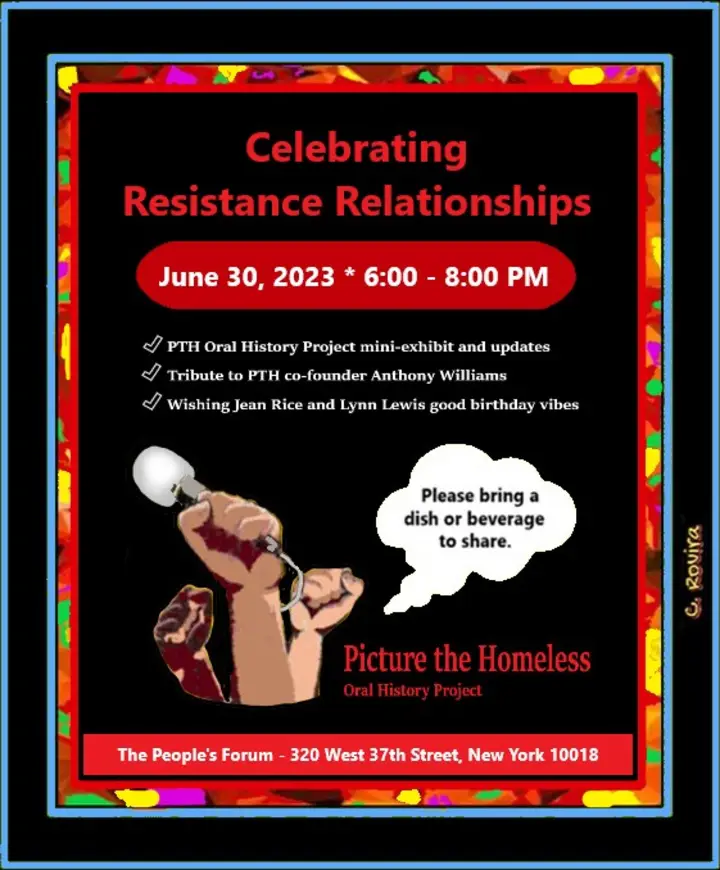
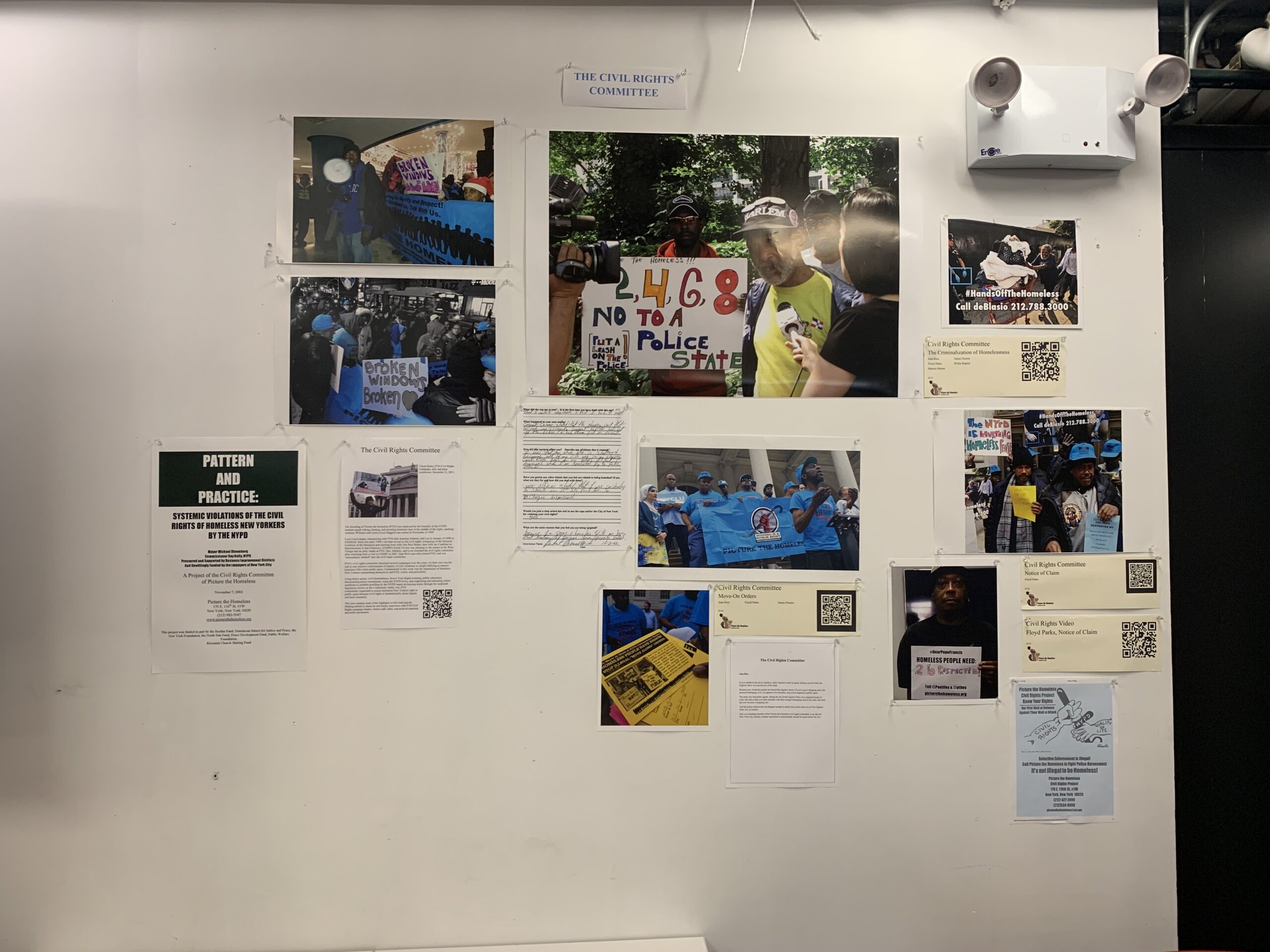
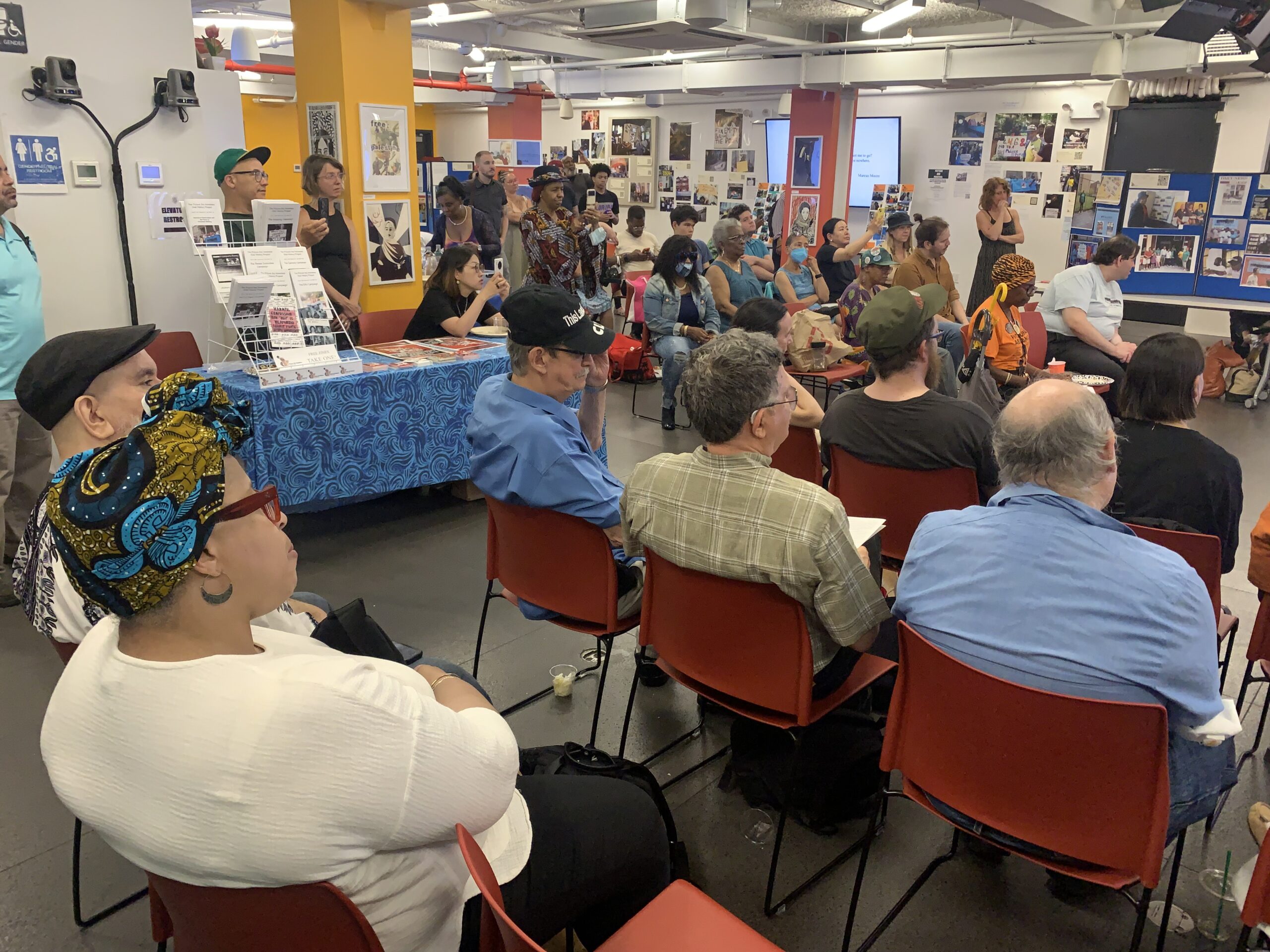
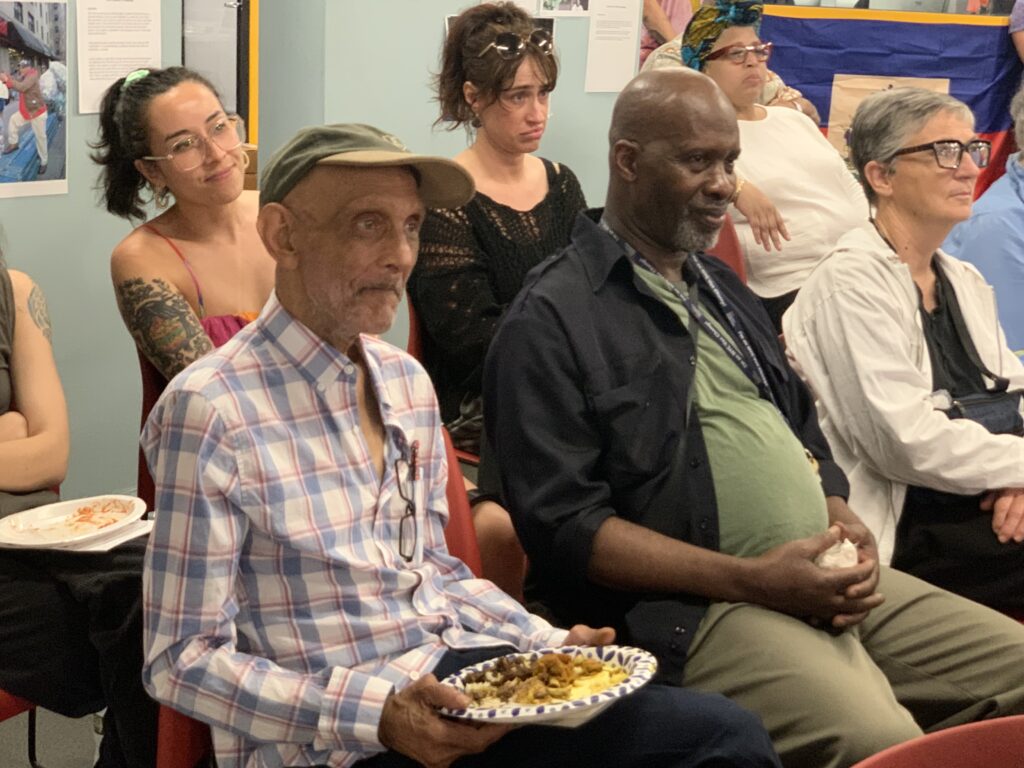
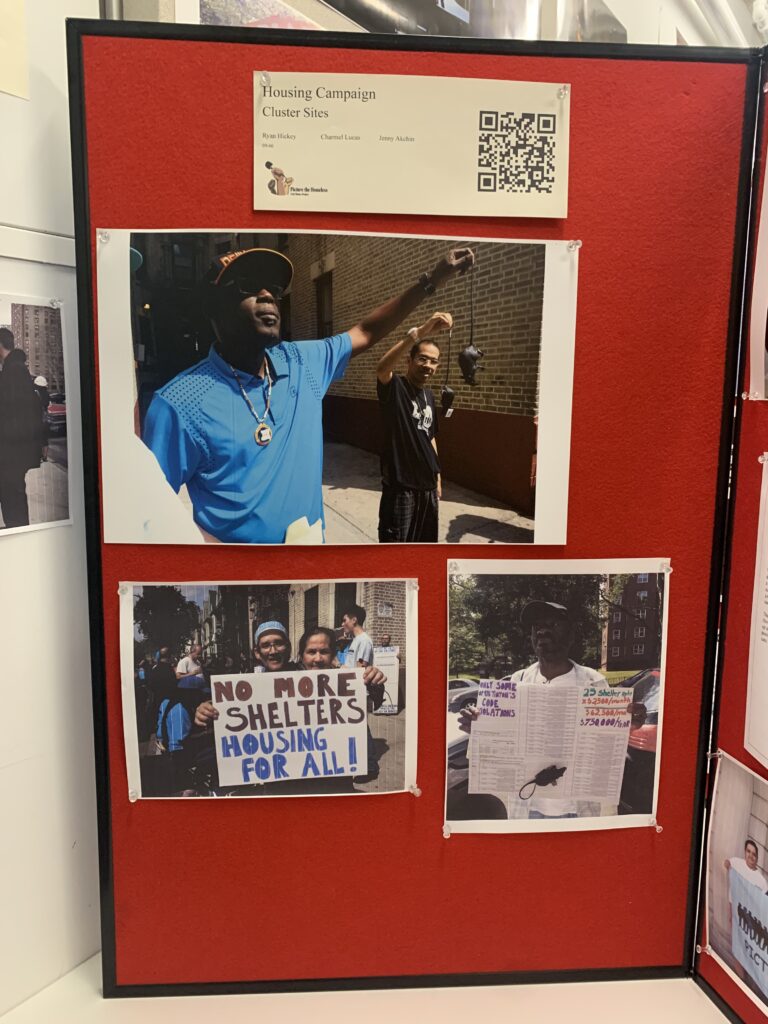
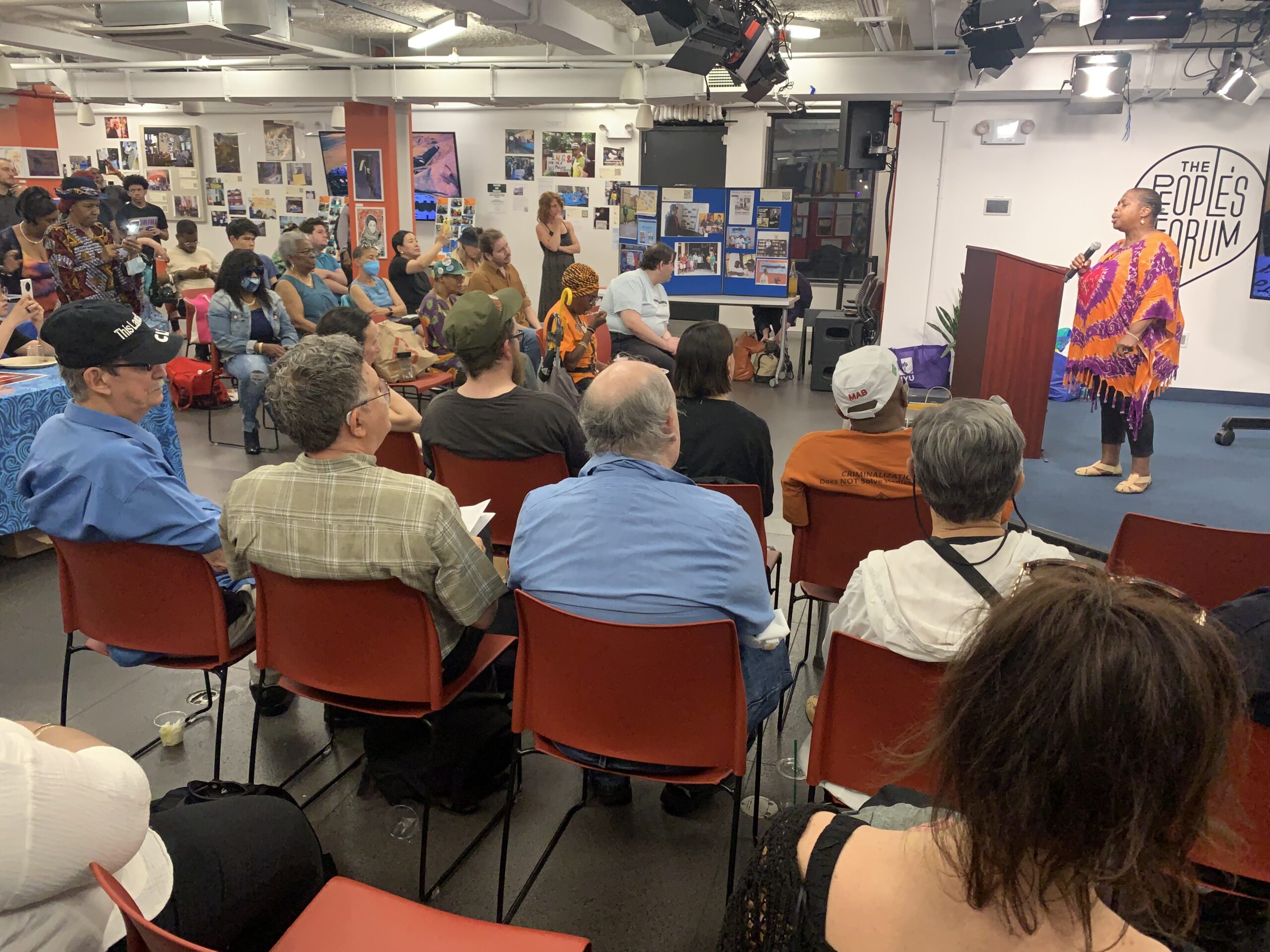
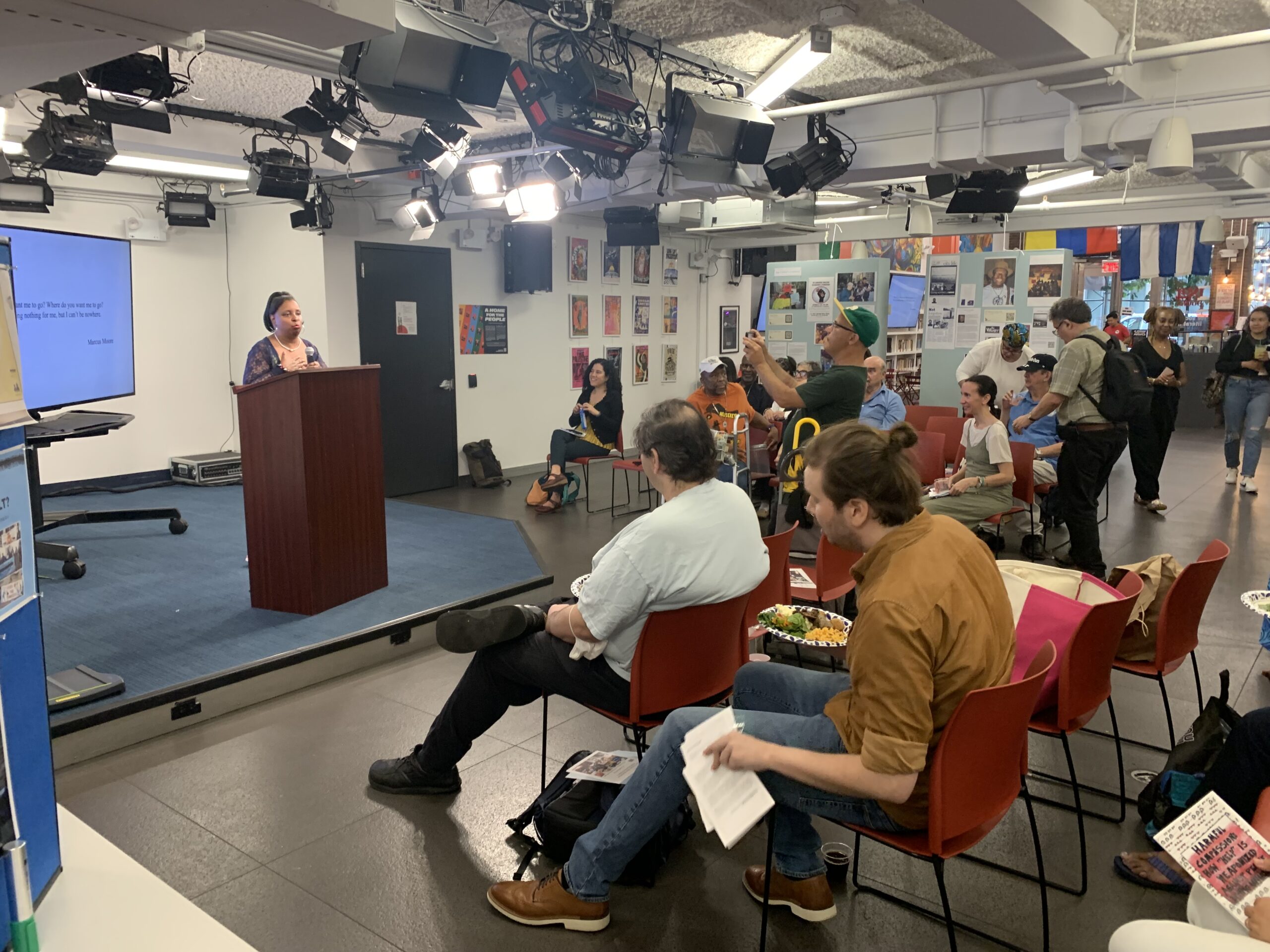
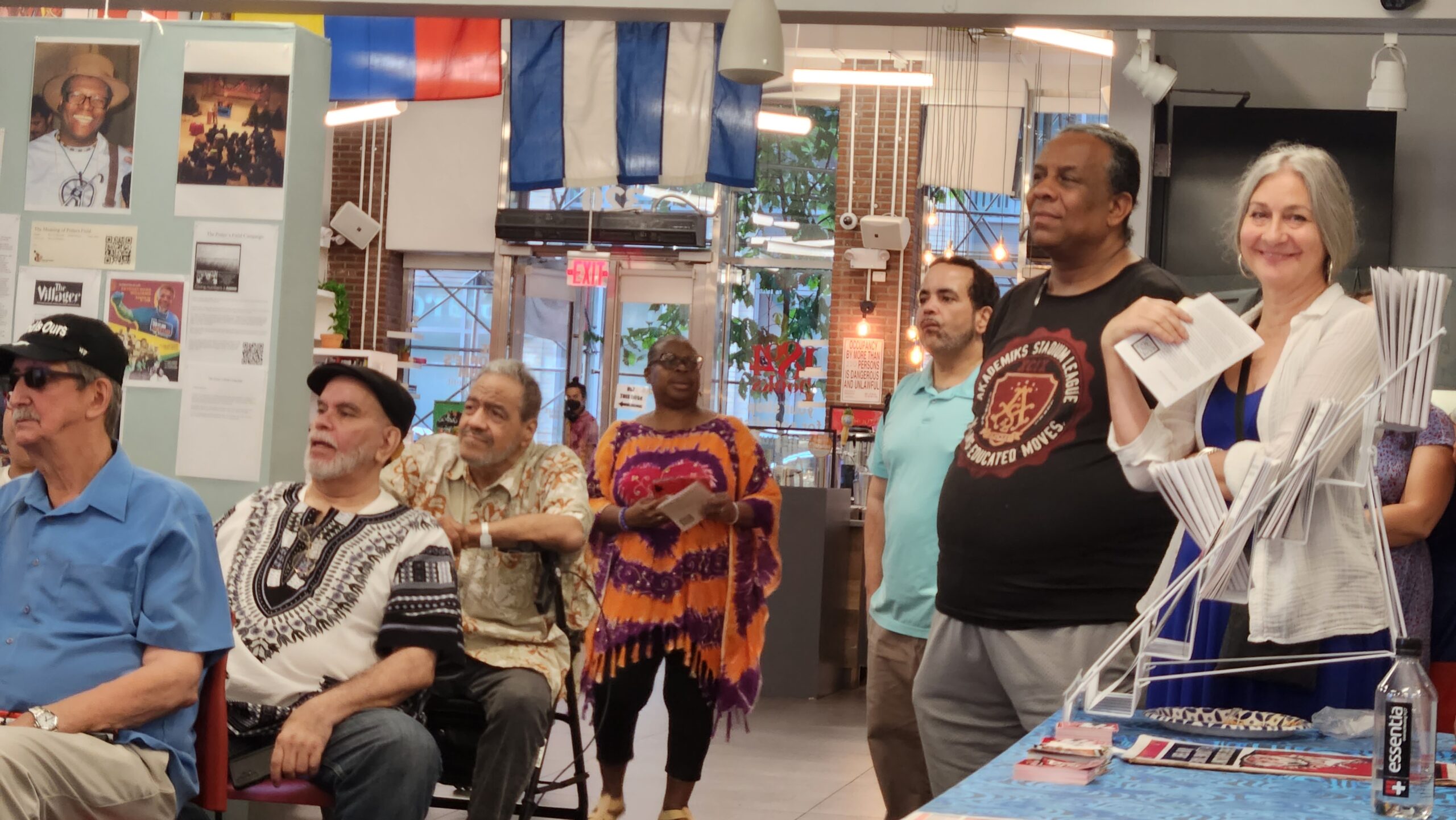
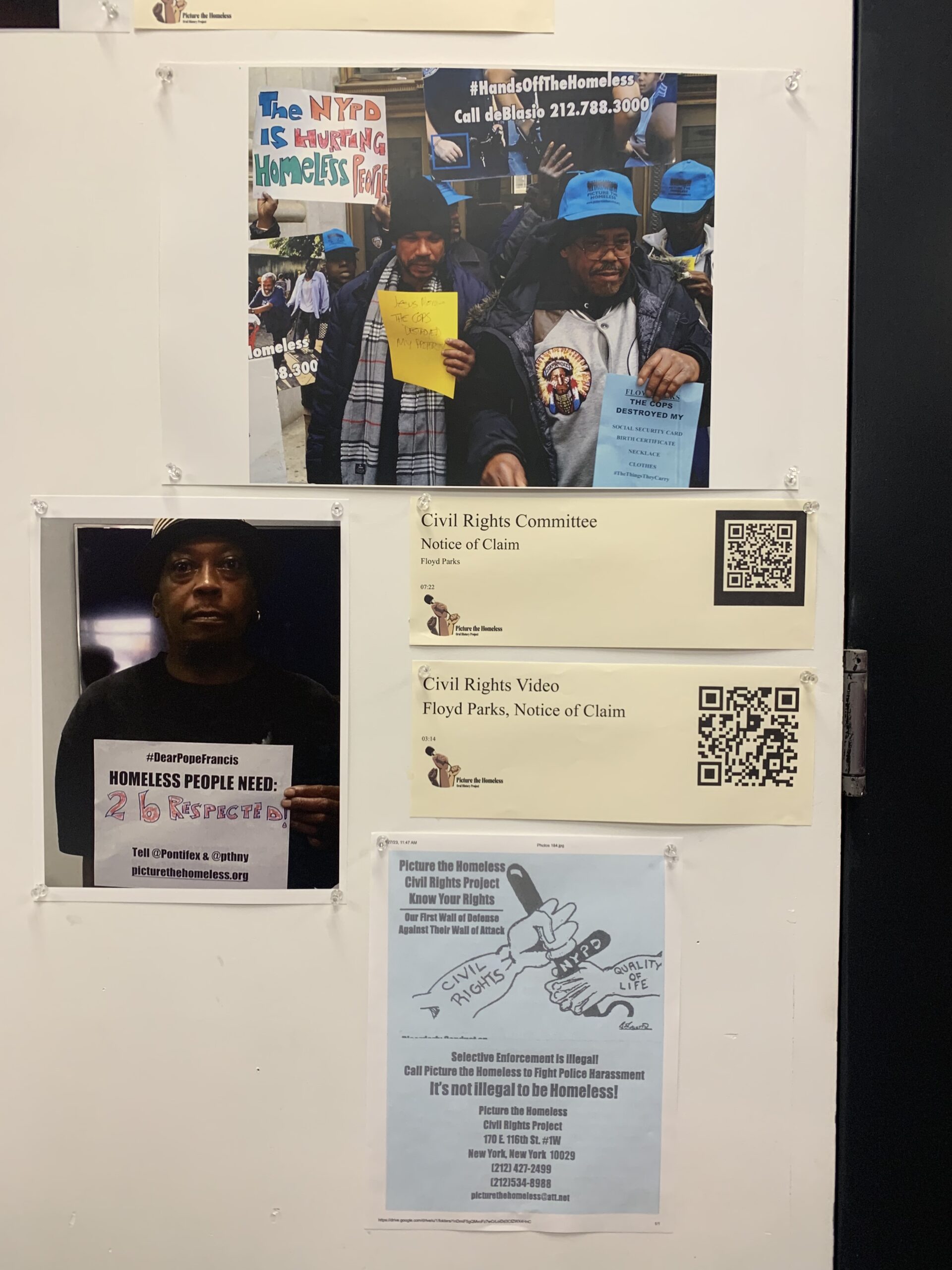
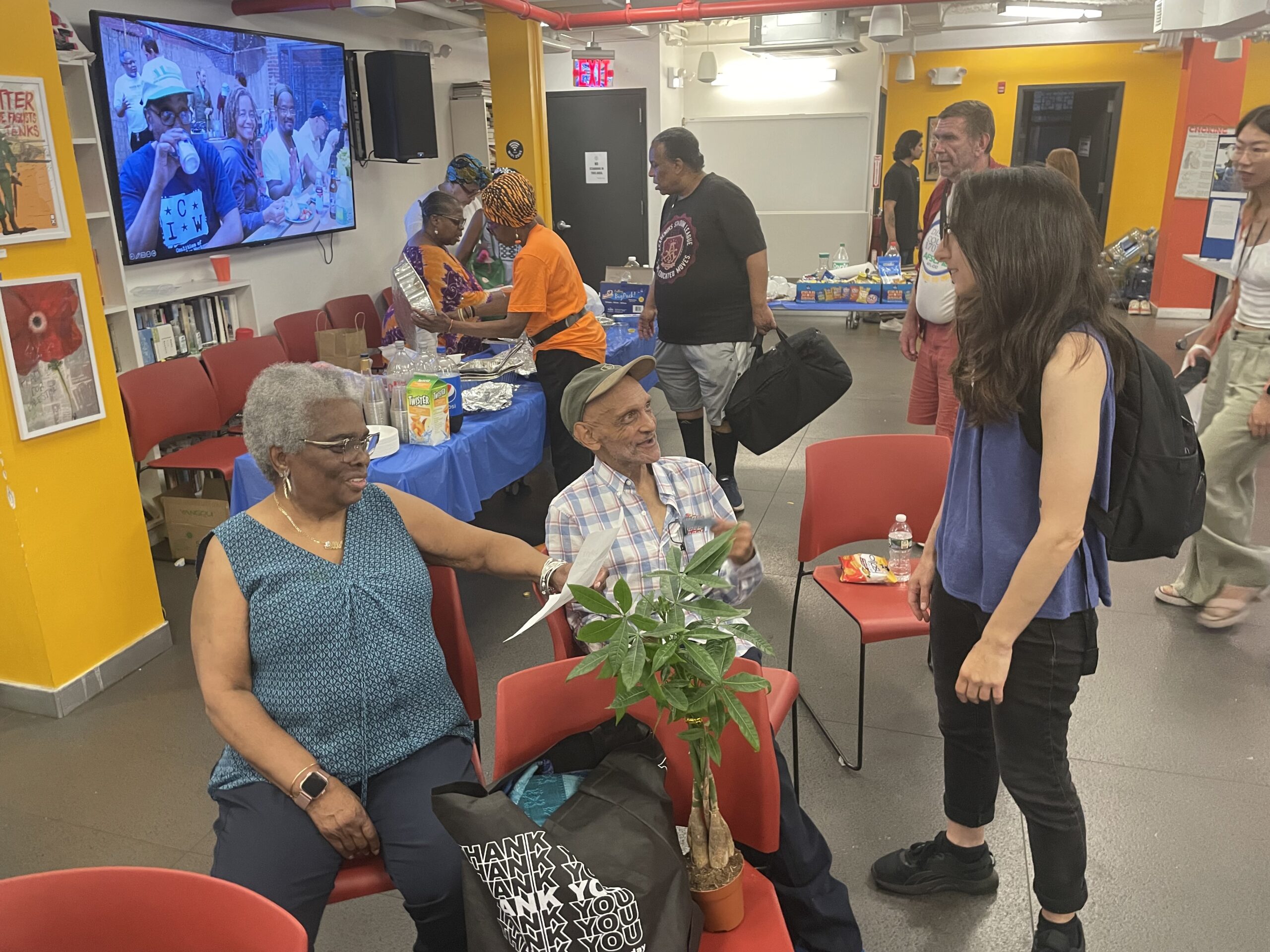
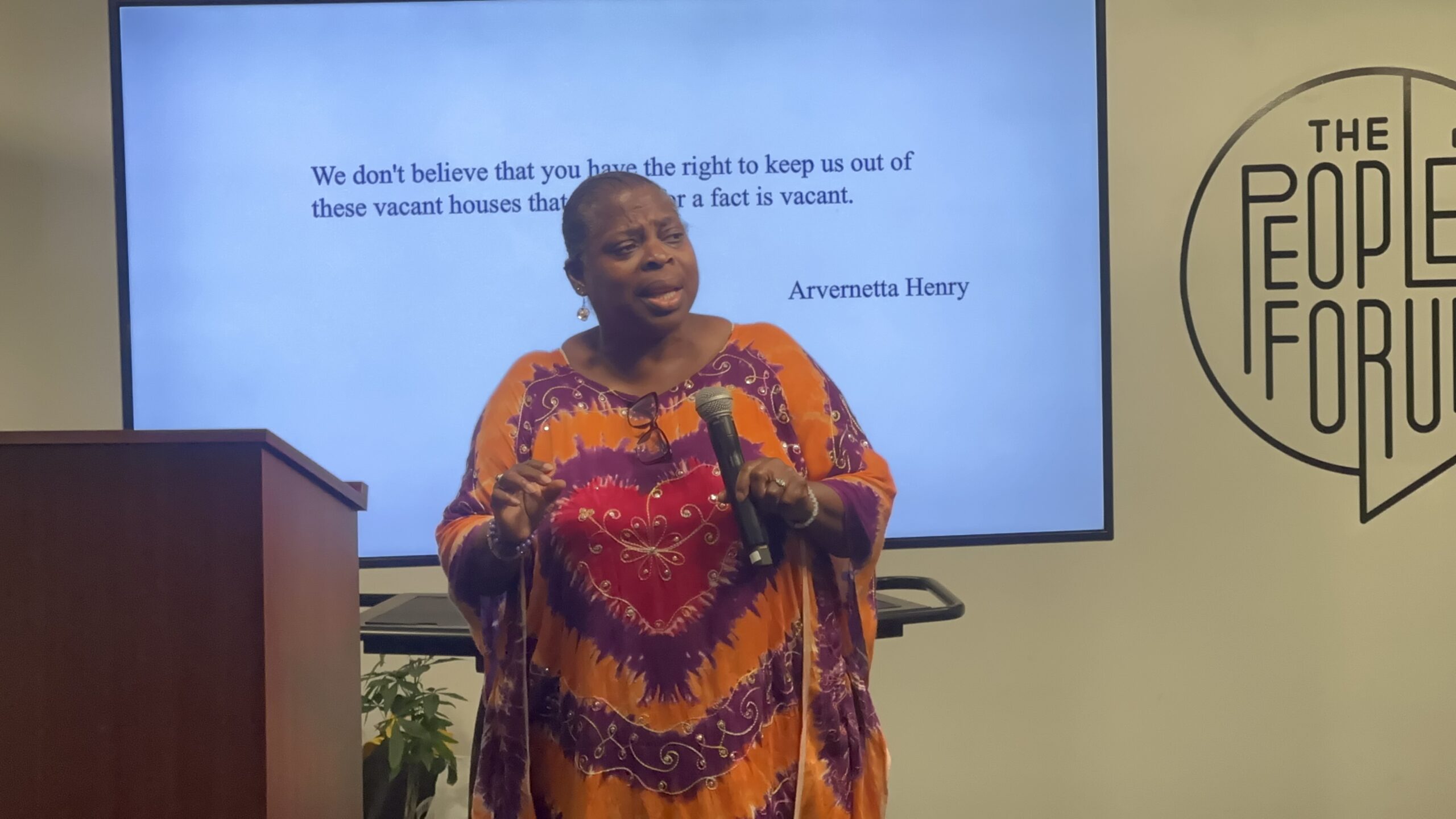
Listen to a compilation of short audio pieces from interviews with leaders and staff at Picture the Homeless:
Listen to the entire collection of oral history interviews as well as shorter audio pieces here: https://on.soundcloud.com/A5ZQa
Picture the Homeless Campaign Zines:
THEMES
What was it about PTH’s approach to organizing that supported the political leadership and commitment of PTH’s homeless leaders? How did that leadership impact movement thinking about homelessness? How did homeless political leadership change public policy?
Community organizers listen for issues that are important to community members. In oral history, themes are identified within an interview and common themes are identified across interviews.
It isn’t surprising that strong and consistent common themes emerged from this collection of oral history interviews. Narrators are all folks who maintained a long-time relationship with PTH and in many cases, with one another. Together they reveal the foundational elements of PTH’s organizing methodology, and help answer the question – what were the conditions that supported the political leadership of homeless New Yorkers at PTH. The overarching themes that emerged from these initial 50 interviews are:
Being Welcoming Representation Education Leadership
Resistance Relationships Justice Collective Resistance
These intersecting themes represent the foundation of PTH’s organizing methodology, embodied in PTH’s mission statement. Other themes, specifically, The System and Race, reflect the conditions that contextualized narrators daily lives.

Thematic zines share out the overarching themes that form the pillars of the Picture the Homeless organizing methodology. These zines offer examples of how PTH created the conditions to support and sustain these conditions/themes and the impact of that work on PTH members, staff and allies.

Zines based on interviews with individual narrators can be accessed here: https://drive.google.com/drive/folders/1qWhWVynhRM51a-YNsBb3OGMgAn1oNsPX?usp=sharing
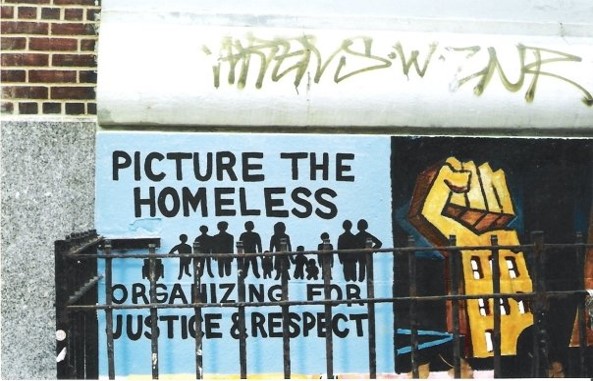
The first Picture the Homeless mural, at CHARAS on the Lower East Side of Manhattan, the location of PTH’s first public meeting.
Other Oral History Work:
Oral Historian and Narrative Consultant, The Jean Rice Story: a memoir and social history of the United States, based on dozens of oral history interviews with Jean Rice, an 82 year old formerly homeless social justice leader in NYC. Moving from South Carolina to Harlem with his mother and extended family during the Great Migration in the 1940’s, Jean contextualizes his life story within critical historic moments in U.S. and world history, supreme court cases, and social movements while challenging white supremacist policies and anti-black stigma that forms the basis of the public policies which impact his daily life.
The following story of how Jean got his name is an example of his approach:
I am sure most people know when you spell Jean, J-E-A-N, in the English tradition, it’s usually a female but in the French tradition when a Frenchman is named Jean it’s spelled Jean also. So, due to racial discrimination, when I was born on July 1st, 1939, in Anderson South Carolina under the separate but equal Plessy vs. Ferguson doctrine my mom wasn’t able to go to a hospital and give birth to me. We had a French Creole midwife named Miss Emma Edwards who delivered me. When I came into the world, and they saw my gender, she asked my mom, it’s a boy, what do you want to name him? So my mother said name him after his father, John Rice. And she spelled John, Jean.
Lynn Lewis, interview with Jean Rice, October 6, 2017.
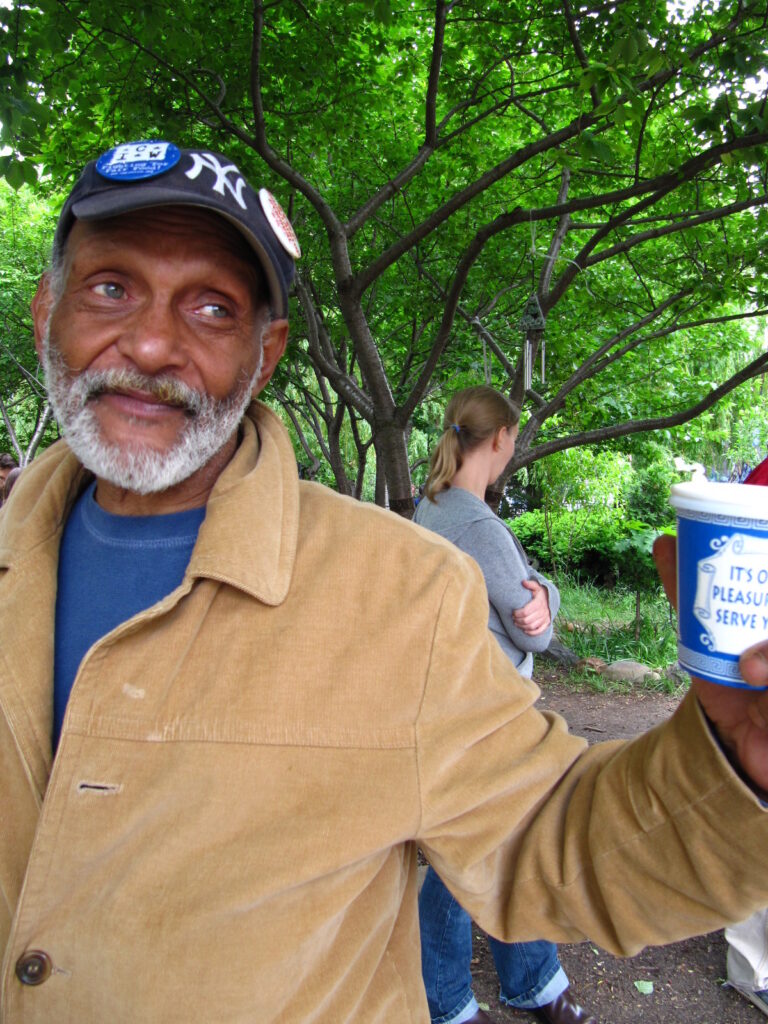
Oral Historian, The NYC Covid-19 Oral History, Narrative and Memory Archive at the Interdisciplinary Center for Innovative Theory and Empirics (INCITE) at Columbia University. As a member of a team of dozens of oral historians, I’ve conducted interviews with homeless New Yorkers and homeless advocates about their experiences during the pandemic to ensure that those stories are included in the historic record of our collective experience with COVID-19. For more information on this critical and beautiful oral history project, please see: https://incite.columbia.edu/covid19-oral-history-project.